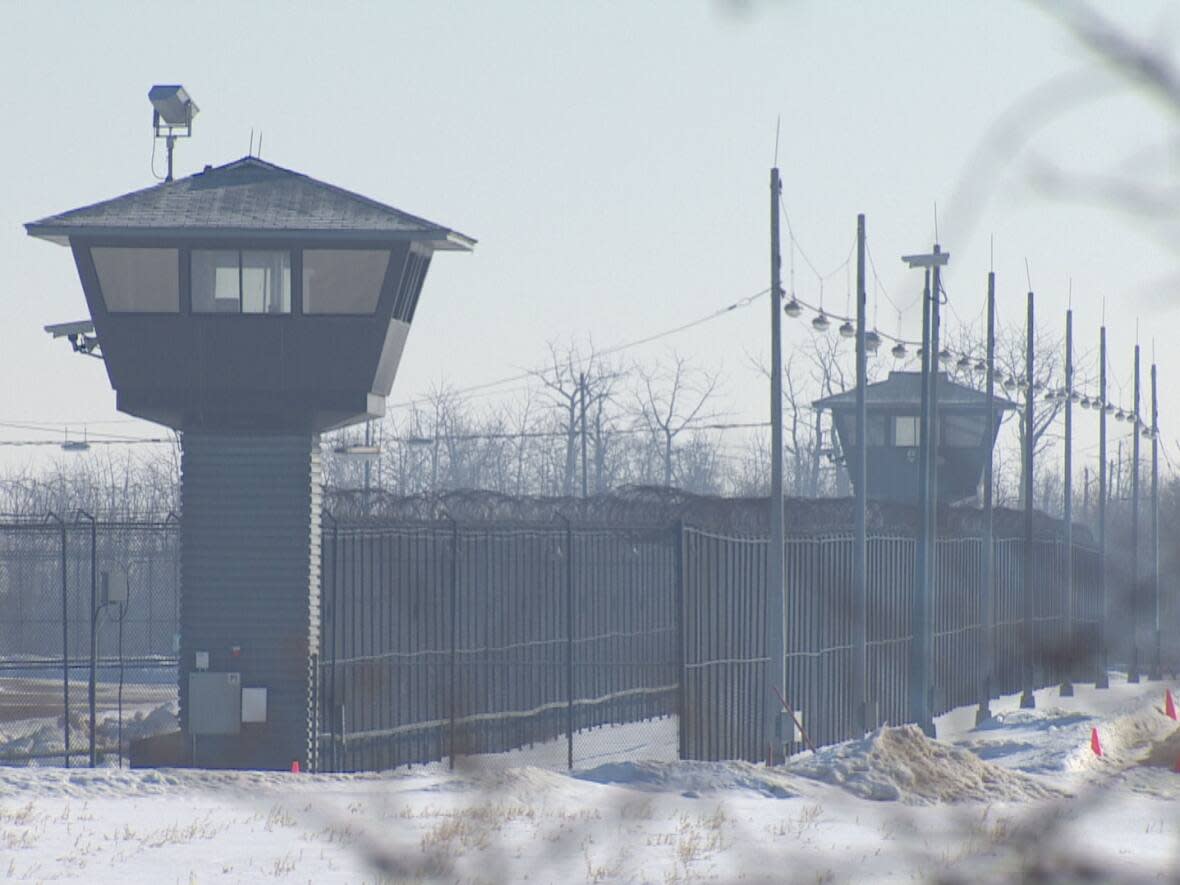Defence lawyers, inmate sound alarm over conditions inside Edmonton Institution

Conditions inside Edmonton's maximum-security federal prison are again in the spotlight with one inmate describing a "cruel and unusual" environment with violence and excessive confinement.
"I fear for my life here," Aaron Moore told a provincial court judge last week, calling his surroundings at Edmonton Institution "a storm of cruel and unusual punishment."
Moore, who was transferred to the prison after stabbing a fellow inmate at the medium-security Drumheller Institution in August, also told the court that since he arrived at the prison, he has not had access to Alcoholics Anonymous, Narcotics Anonymous or school.
"I pray that I can get the help that I need," he said, adding that his main goal is to be transferred back to Drumheller Institution, where those programs were available.
COVID-19 cases and extremely high burnout among correctional officers is having a cascading effect on inmates including excessive confinement, according to the correctional officers' union.
Bill C-83, which came into effect in 2019, was meant to end solitary confinement in prisons by moving prisoners with security risks to "structured intervention units" or SIUs.
Federal regulations say inmates in SIUs must be given the opportunity to be out of their cell for a minimum of four hours per day, but Moore told the judge that since Jan. 1, he had only been out of his cell for more than fifteen minutes on four occasions.
The news comes on the back of an investigation late last year by correctional investigators about "very serious allegations."
In a November 12 letter obtained in response to an access request, Correctional investigator Ivan Zinger told Correctional Service of Canada Commissioner Anne Kelly that two of his investigative staff conducted a three-day "exceptional closed visit" to the Edmonton prison, following numerous calls and complaints.
He wrote in the letter that investigators found "oppressive and intolerable" conditions of confinement and that for a maximum-security facility, the institution was "overpopulated, under-serviced and severely short-staffed."
"In light of these preliminary findings, I believe that Edmonton Institution requires national level intervention, including your immediate assistance and support," he wrote.
Zinger told CBC he was encouraged by the response he received from the commissioner, but there is still work required to make the prison function as it should.
Staff shortage
James Bloomfield, prairies regional president for the Union of Canadian Correctional Officers, said staff shortages across the service have worsened during the pandemic, including at the Edmonton prison.
Correctional officers have extremely high burnout and post-traumatic stress disorder rates, he said, and since fewer staff are working, inmates are being confined to their cells more.
Bloomfield said in-classroom programming was stopped to reduce the spread of COVID-19 and volunteers are not allowed to enter outbreak sites. In-cell learning is available, he said, but it is limited.
Jeff Campbell, spokesperson for CSC, said correctional programs and other activities remain available but because of the pandemic, the delivery has been adapted and is regularly reassessed.
"The health and safety of our employees and offenders is our top priority as we navigate this public health crisis," he said.
Warning shot went through door
In addressing provincial court, Moore also described a Jan. 8 situation in which corrections officers had fired rounds from what he believed to be "assault-style weapons" following a fight between inmates.
Defence lawyer Jill Shiskin said Moore is one of two clients at the prison who shared the same story with her about the Jan. 8 incident. She said both clients told her a "warning shot" fired by an officer went through a door that was supposed to be bulletproof and struck another inmate.

"This incident must be properly investigated and those responsible for it must be held accountable for their actions," said Amanda Hart-Dowhun, president of the Alberta Prison Justice Society, in a letter to Correctional Investigator Ivan Zinger on Monday.
Zinger told CBC News his office investigates serious incidents and this one qualifies.
CSC released a statement to its website on Jan. 13 saying that following a physical altercation on Jan. 8, two inmates were taken to a community hospital for assessment and treatment.
The statement said one of the inmates was treated for his injuries and returned to the prison that night and the other remained in hospital, but there was no mention of a third inmate.

CBC News asked whether corrections officers fired weapons following the incident and whether anyone was hurt as a result.
Campbell said officers "attempted to de-escalate the situation with the use of impact munitions and warning shots."
One inmate who was not involved in the altercation "reported a surface abrasion to medical staff and no further medical attention was required," he said.


